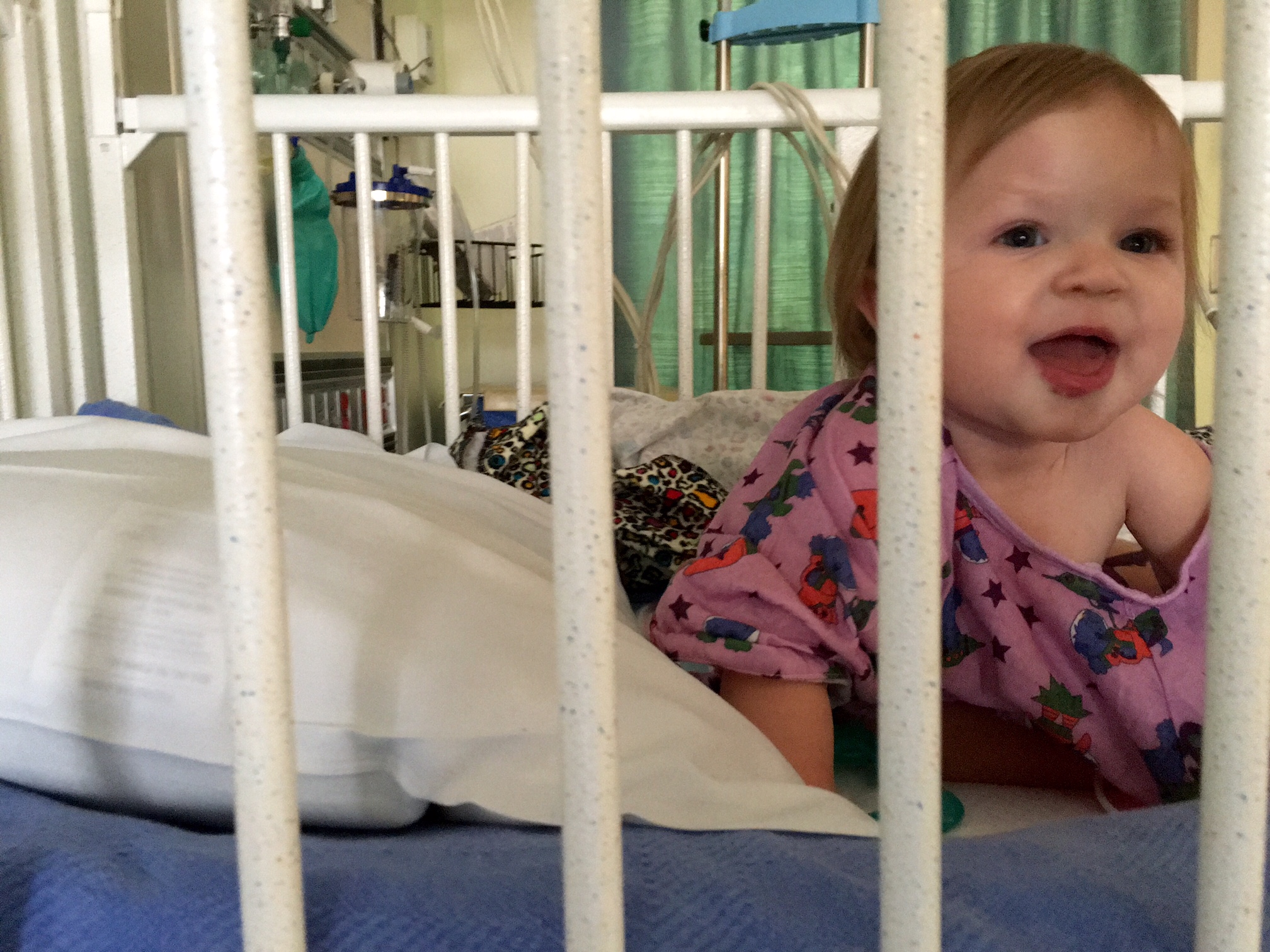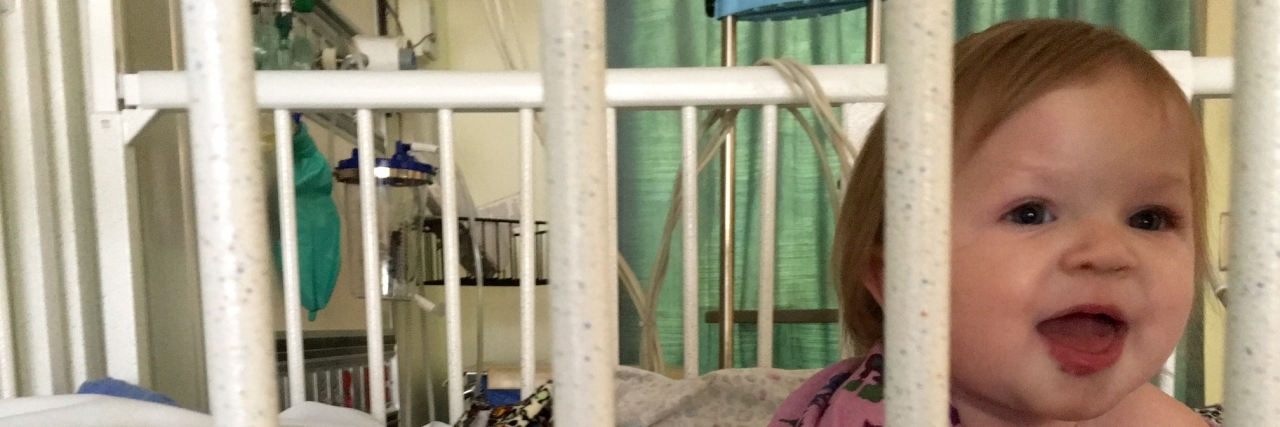When People Say Our Daughter's Seizures Are 'Harder on You Than They Are on Her'
 Maybe I’m still angry. Maybe I’m still sad. Maybe I’m still in shock. All I know is whatever I am, the way the world understands seizures has got to change.
Maybe I’m still angry. Maybe I’m still sad. Maybe I’m still in shock. All I know is whatever I am, the way the world understands seizures has got to change.
On Friday, April 8, 2016, my 14-month old daughter, who has diagnosed with epilepsy at 3 months old, was experiencing a cluster of atonic and absence seizures and at 5:37 p.m., it turned into a near fatal tonic clonic episode.
Other relevant stories:
• How Does Epilepsy Affect Daily Life
• Famous People with Epilepsy
• Epilepsy Triggers
In that moment, our lives changed forever.
It was more than just having to watch your 17-pound baby convulse uncontrollably. It was more than thinking your heart was going to jump out of your chest. It was more than thinking you were watching the last minutes of your child’s life.
Because the truth is, it is so much more than just a seizure.
In the last year, my husband and I have heard countless medical professionals tell us, “She’s going to be OK. Seizures are just hard to watch. It’s harder on you than it is on her.”
And I get it. I understand they have had to witness unspeakable tragedies. They have likely seen the worst of the worst, things most of us couldn’t even fathom – things far worse than a measly seizure.
But when you witness your child having a seizure, it isn’t just hard to watch. It cuts you to your core.
Because you don’t just watch the seizures. You watch everything in between. You are in constant fear of the next one. You scrutinize their every move. You listen to every sound. On the good days, you’re helpless. And on the bad days, you’re hopeless.
On that particular Friday evening, I thought I lost my baby. I will never erase the image of her laying lifeless on the ground with my husband holding her hand, begging her to come back to us. She was completely gray. Her eyes were rolled in the back of her head, and her face was covered in white, filmy foam.
Through my screams and tears to the 911 operator, I tried to explain this wasn’t a typical seizure for her. This was different. She was dying. She had stopped breathing for over two minutes.
By the time the paramedics and firemen arrived, she had come out of the seizure. To them she was, by all exterior accounts, fine. I know this not because of any examinations or rescue techniques they performed – because there were none.
I know this because of their comments. Their assumption that I needed to be reassured she was going to be OK. Their assumption that I had never seen her have a seizure before.
Before that day, we had seen our daughter have hundreds of them. Different types, different durations, different frequencies, different postical reactions, different medications – each one different from the last. And each one equally as terrifying to experience with her.
Never once had we called 911. Never once was it this bad. We didn’t make that phone call to be pacified. We didn’t go to the ER for comfort. And we certainly didn’t seek medical care to hear people tell us this is “harder on us than it is on her” or that “she is going to be OK.”
Because she’s not. Living with a seizure disorder does not make someone “OK.” There is something unexplained happening in her brain. We don’t know why this happening. We don’t have any answers. We. Can’t. Fix. This.
The sad truth is, no one can. Neurological issues are just as unique and specialized as the person having them. Perhaps because the world can’t physically see what’s happening on the inside to someone who suffers from epilepsy, it is hard to grasp the magnitude of each seizure’s effect.
But we do. We see it. Every single day. It doesn’t get easier and you never get used to it. It’s an uphill battle with a lifelong fight.
We don’t want to hear that this is harder on us than on her. We don’t want to be told to calm down. We don’t just watch our daughter have seizures. We watch her struggle, her pain and her chaos.
So tell us she she’s a fighter. Tell us she is brave. Tell us she courageous.
Because when we watch her seizures, that is what we see.
The Mighty is asking the following: Describe a moment you were met with extreme negativity or adversity related to your disability and/or disease (or a loved one’s) and why you were proud of your response — or how you wish you could’ve responded. Check out our Submit a Story page for more about our submission guidelines.

